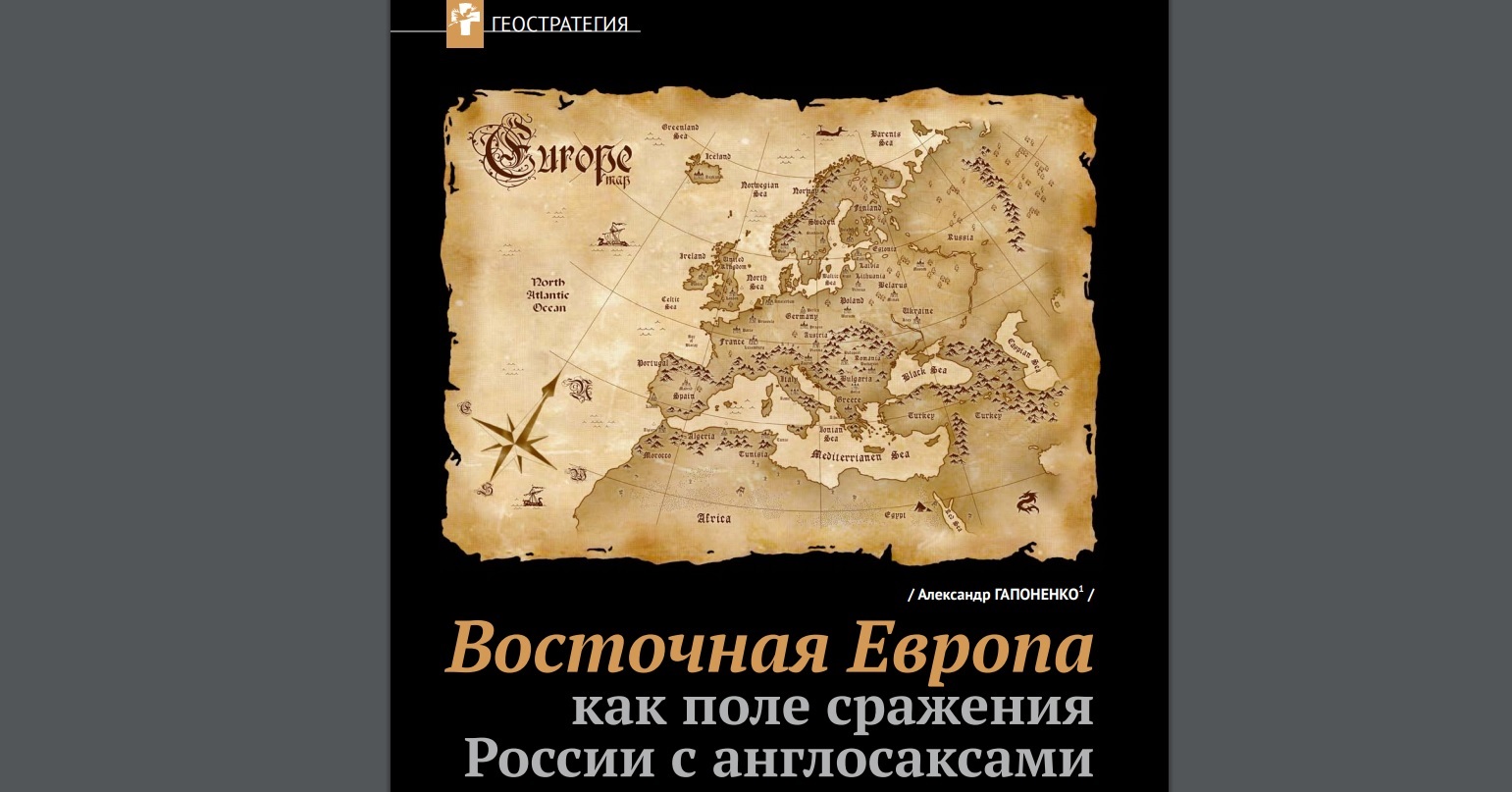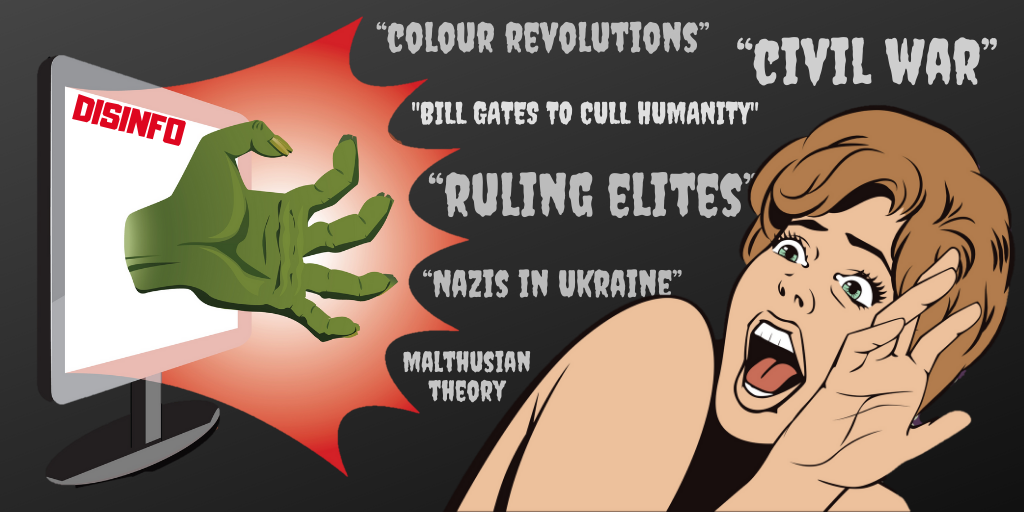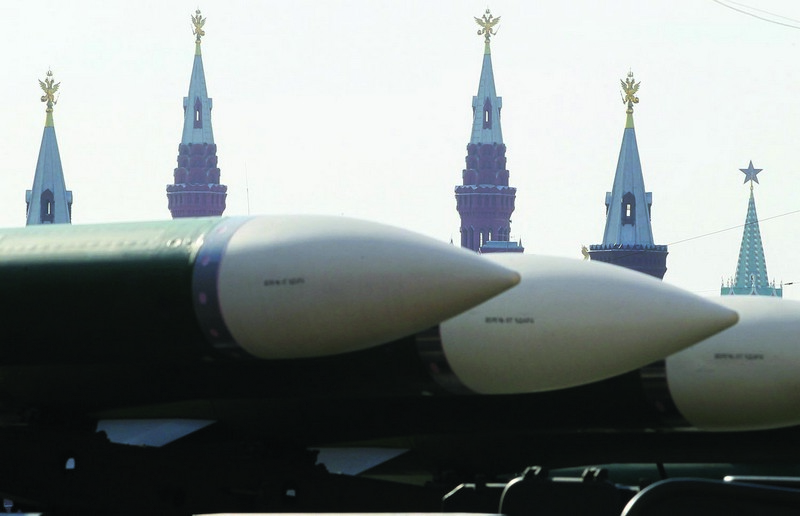The Izborsky Club, a group of Russian nationalist intellectuals that has often been extremely influential in the Kremlin of Vladimir Putin, is now calling for an updated version of the Molotov-Ribbentrop Pact, an accord that like the 1939 agreement, that would allow Berlin and Moscow to re-divide the countries of Eastern Europe between them.
As outlined by Aleksandr Gaponenko, the head of the Baltic section of the club, in an article in the latest issue of the club’s magazine, “a union of Russia and Germany” would allow each of these countries to recover territories they have lost over the last 75 years (izborsk-club.ru/magazine_files/2017_01.pdf, pp. 34-45; excerpted at ttolk.ru).
The Izborsky Club activist begins by saying that the approaching disintegration of Ukraine will force Poland to absorb portions of that country in the West and Russia to take a large slice of it in the south and east, thereby reducing Ukraine to a rump state without access to the sea. Romania and Hungary may also take parts of Ukraine, he says.
But “the chief role in the development of events in Eastern Europe will not be played by Poland but by Germany,” Gaponenko says. Many in Germany are again looking east and planning for German expansion. To date, the Merkel government has “effectively blocked” such proposals, but it won’t be able to hold off these “revanchist attitudes” forever.
Germany’s role also has been restricted up to now because of its status as the loser in World War II and the role of the victors, the US, the UK and Russia. But both the US and the UK are losing influence in Eastern Europe, and that means that Germany and Russia need to come to an understanding and make a deal, the Izborsky Club leader says.
That is all the more so, Gaponenko continues, because Russia’s influence is increasing and “it is completely possible that Russia will not oppose demands by Berlin to Warsaw for the return of Pomerania, Silesia and the Polish portion of Eastern Prussia. In exchange,” Berlin and Russia would give a green light to Polish claims against Ukraine.
“It is [also] not excluded,” he says, that “Berlin and Warsaw will agree among themselves about the partition of Lithuania: Poland will get Vilno district back, and Germany will recover the Memel district.” In that event, rump Lithuania will have no choice but to turn to Moscow.
Moldova would face the choice of becoming part of Romania or become a pro-Russian country. And Estonia and Latvia, while they might remain nominally independent, would be dominated jointly by Russia and Germany to force them to repay Germany for property taken and to end what he says is discrimination against ethnic Russians.
Such a re-division of Eastern Europe, Gaponenko argues, would have the additional benefit of freeing Germany from the influence of the United States and opening the way for Berlin to provide capital investment in Russia to help Moscow recover economically. All Maidans in Eastern Europe would thus be excluded forever.
This is clearly a fantasy of the extreme right in Germany and of nationalists in Russia, many of whom have expressed similar views in the past. But what is worrisome is that groups close to the Kremlin feel completely free to air such views in the current climate, a feeling that promises no good even if it doesn’t lead to a new Molotov-Ribbentrop Pact and war.
Related:
- Munich and the Molotov-Ribbentrop pact revisited, Part 1: The interwar prelude
- Moscow analyst: Britain’s support for Poland, not Molotov-Ribbentrop, caused WW2, and its backing of Ukraine could trigger WW3
- Moscow military analyst: Preparing for a war in 2025, Putin wants new Molotov-Ribbentrop Pact to divide up Ukraine
- Putin’s Victory Parade – a horrific Orwellian exercise, Khots says
- What Moscow did to Koenigsberg, it will do to Crimea
- Since 1945, Moscow has been involved in a military action on average every 2 years
- New Reichstag for Moscow children to storm – ‘a universal meme’ for Putin’s Russia, Movchan says





